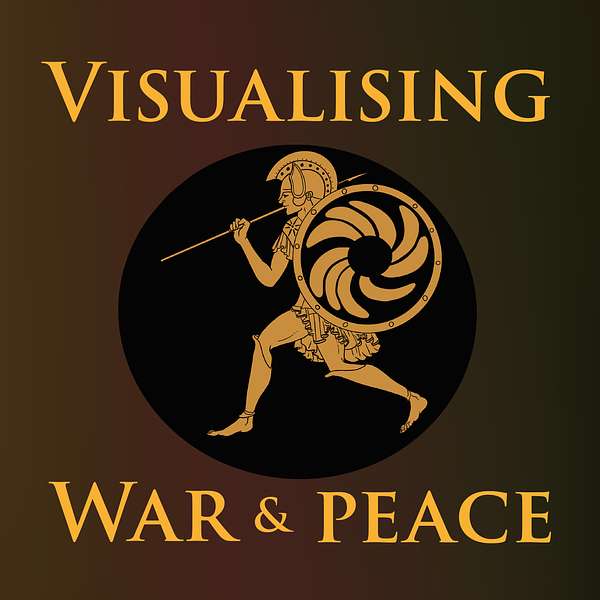
Visualising War and Peace
How do war stories work? And what do they do to us? Join University of St Andrews historian Alice König and colleagues as they explore how war and peace get presented in art, text, film and music. With the help of expert guests, they unpick conflict stories from all sorts of different periods and places. And they ask how the tales we tell and the pictures we paint of peace and war influence us as individuals and shape the societies we live in.
Visualising War and Peace
Refugee Integration through Language and the Arts with Alison Phipps
This episode is part of a mini series exploring forced displacement as one of the many legacies of conflict. Alice interviews Prof. Alison Phipps, a Professor of Languages and Intercultural Studies at the University of Glasgow and UNESCO Chair in Refugee Integration through Language and the Arts. Alongside her academic work, Alison is Co-Convener of the Glasgow Refugee, Asylum and Migration Network, an Ambassador for the Scottish Refugee Council, and she also chairs the New Scots Core Group for Refugee Integration in partnership with Scottish Government and the Scottish Refugee Council, among other high-profile advocacy and policy-making roles. Alison is in regular demand as a speaker and commentator, especially on refugee issues; and in 2012, she was awarded an OBE for Services to Education and Intercultural and Interreligious Studies.
In the podcast, we talk about contemporary discourses of migration, in particular the dehumanising tropes that are used to generate fear and a sense of threat ('swarms', 'invasion', 'floods', etc). Alison reflects on the importance of decolonising the language we use to talk about refugees and asylum seekers, and she helps us see the immense value of going to other languages to explore how they visualise and articulate migration and mobility. Words are world-building; but the complexity of meaning that we find when we compare expressions in different languages helps us to nuance our understanding and rethink the attitudes that our own words embody. This in turn can help decontaminate hostile discourses and de-escalate the wars being waged against people whom we are taught (by news headlines and political rhetoric) to feel afraid of.
This leads to discussion of the impact that language learning can have on refugee integration. Crucially, Alison advocates for host populations learning refugee languages, and not simply the other way around. She talks particularly about a project (run by colleague Giovanna Fassetta) in which Scottish primary school teachers learn Arabic from trauma-informed colleagues in Gaza, so that they can sympathise and celebrate with refugee children in their classrooms in their own language. We also talk more generally about what host populations can learn from refugee communities about how to handle different kinds of trauma and how to care for trauma-affected people, with refugees leading the way as experts-by-experience in this space. As Alison outlines, a well-thought-through integration strategy generates an environment of mutual learning, rather than imposing an expectation on refugees (who are handling many different challenges all at once) to do all the learning and adaptation themselves.
Along the way, we discuss the role that the arts more broadly can play in deepening understanding, reducing fear and defusing hostile rhetoric around forced migration. Alison has a wealth of expertise of working through drama, film and other art forms, and she reflects on what it takes to amplify indigenous voices and empower people with lived experience of forced migration to take charge of the discourse themselves.
We hope you enjoy the episode. To find out more about our wider project on Visualising Forced Migration, please visit our website. If you have any questions or want to contribute to our ongoing discussions, please do get in touch. You can follow us on social media or contact us directly by emailing us at viswar@st-andrews.ac.uk. We look forward to hearing from you!
Our theme music was composed by Jonathan Young.
The show was mixed by Zofia Guertin.